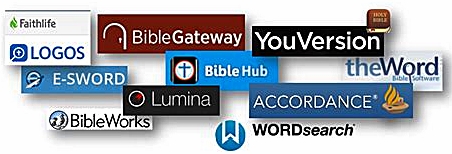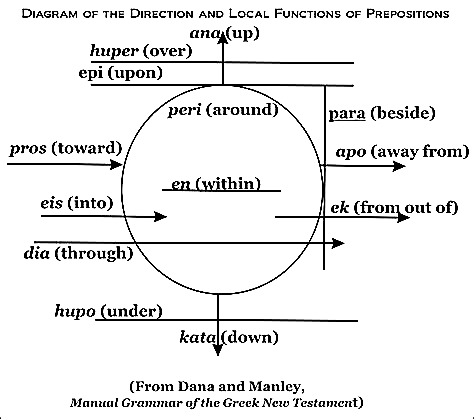Bible Info – BT1 – Spirit Music Meet-Ups


Click on Pic to start video
Bible Info – YouTube Playlist
Video – Intro to Spirit Music Meetups
SUBSCRIBE to our YouTube Channel to get the latest videos!
Follow us on GETTR, the fastest-growing free-speech Social Network in the world!
All of our Media info, photos, and videos
Please comment on the bottom of any page following our BLOG Etiquette Guidelines.
Note: On your phone, PDF documents may only open if you choose the “Save, Replace, or Keep Both” option and then it will be downloaded and notify you of this on the top of your screen. Open it there or in your Downloads folder and it will give you the option to Open with Adobe Acrobat, Drive, or some other PDF app you have installed on your phone. If you watch the associated video, it will open in another tab/window so that you can easily bounce back & forth between the PDF doc and the video. If your screen is big enough you can even arrange the windows next to each other!

The Bible resources and information used in this website:
The bible verse references from the Old Testament (OT) and New Testament (NT) are from the English Standard Version (ESV), which is well recognized for its “Formal Equivalence” word-for-word accuracy, but I’ve added key words in italics, and sometimes in (parenthesis) or [brackets] from the original Hebrew and Greek texts. If from the OT, then from the Hebrew Masoretic text, followed by Greek Septuagint LXX text using https://biblehub.com/interlinear/ and https://biblehub.com/interlinear/apostolic/genesis/1.htm, respectively, and confirmed by http://classic.net.bible.org. However, if from the NT, then the Greek UBS/Nestles critical text is used from https://biblehub.com/interlinear/ and http://classic.net.bible.org. In the OT, I’ve combined the Greek and Hebrew definitions since Textual Criticism often debates what is a better reading, so why ‘play an all-knowing God’ but instead allow for both possibilities, or leave it to you to research further and/or pray about it. I often insert the definitions into the text like the Amplified Bible (AMP), Expanded Bible (EXB), and The Passion Translation (TPT) do, especially to fit the contextual meaning, which is always the final step for selecting a word’s meaning. However, if the definitions are lengthy, I will put them in the <notes> section under the paragraph. All of these things can nevertheless make my writing more difficult to read, so I apologize for the choppiness, but there’s no other way short of writing excessive commentary to convey the original meaning of the bible! Still it’s a far cry better than any of the 55 translations I’ve seen at www.biblegateway.com!
Also, I’ve kept some vital information in (parenthesis) because it’s for important clarification, especially important verse references, but as I said before, sometimes key Greek and Hebrew words and their special meanings like rabbi (Hebrew for “teacher“), but I often will simply footnote this at the bottom of the paragraph (a) to make it easier for you to read. Also, I’ve kept some words in [brackets] to show they are added in from the word-meaning or context to help the sentence flow, as when Paul calls for the prophets or Spirit-kind-of [persons] to experientially recognize Paul’s teaching is from the Lord (b) – he didn’t say “test my prophecy against the Old Testament scripture or any of my writings you may be lucky to have,” as too many in church people scream! Here, Paul uses an adjective pneumatikos “Spirit-kind-of” as a noun for the “kind of” people that should do the “testing” – see Bible Info – BT5. Another example is the definite article “the” that doesn’t always need to be specified for the noun to be considered definite or specific: “Worshiping by [singular] Spirit and/coupled [singular] Truth” (c) that Jesus calls all Christians to, is NOT human spirit or any other spirits and also is NOT general truth or even “sincerity” as some translators force it to be! Everywhere in the NT that you see these 2 [singular] words associated, in context they always refer to The Holy Spirit and/coupled Jesus Christ, especially since Jesus said He was “The Truth” (d) – see Intro to Spirit-Promise. <Notes> a) Hebrew rabbi in Greek is didaskalos: teacher, b) 1 Corinthians 14:37, c) John 4:23, d) John 1:14, 17, 14:6; 1 John 5:20; Ephesians 4:21.
Many NT Greek words are contextually used completely different from their OT Septuagint use. For example, logos communication that emphasizes message content in the OT is almost exclusively the holy gramma letters collected into graphe scriptures, thought in the NT logos is only used that way about 1% of the time. The other 99% of the time it is used for the person of Jesus Christ, called “The logos Word/Message of God” or it refers to His “Great News” gospel logos message of The Truth about Himself (b), and His New (a) Covenant plan of salvation. <Notes> a) chadash, kainos: fresh, completely different-in-kind, unprecedented, sharing nothing with its predecessors, unique, and superior, b) John 1:14, 17, 14:6; 1 John 5:20; Ephesians 4:21.

Old Testament Shadows point to New Testament Realities:
The NT writers, any good teacher would, purposely use terms Jews are familiar with, but they use them in a completely-different-in-kind way, and they justify this because many verses say that the OT is but “a copy and/coupled shadow of the heavenly things, of the things to come, but the reality belongs to Christ” (a). It’s entirely ignorant to hold the OT bible up and say “This IS the Word of God” when the NT makes it abundantly clear that the OT “WAS ONCE the logos “Word of God.” And I’m not saying that accurately either because logos is best translated “message” since it focuses on “rational understanding of the content” of God’s communication through Jesus Christ, the Living & Active Logos! <Notes> a) Colossians 2:17; Hebrews 8:5, 9:23, 10:1; 1 Peter 3:21.
The directly-spoken/heard “Word of God” has always been the prophetic rhema words throughout the OT and NT. All the promises of actual fellowship, sunesis connect-the-dots understanding, sophia wisdom, genuine-experiential-relational-epignosis knowledge, zoe genuine-life, and Spirit-Power are related to revealed prophetic rhema words, never to studied logos messages of the OT. Furthermore, these promises are only realized through the gospel’s logos message of the The Truth found in the NT as it refers to Jesus Christ, “the Living & Active Logos of God,” thus becoming the “gospel of our salvation” (a). <Notes> a) Ephesians 1:13; Acts 8:25, 13:26, 15:7; Colossians 1:5.
Therefore, “rightly-handling the logos message of The Truth” (a) has absolutely nothing to do with studying/using OT scripture or even any NT writings that aren’t specifically about Jesus and His gospel message! It’s not even about the study of gnosis bible info-knowledge at all! We have to remember that biblical words are defined by the consistent contextual use of their writers, not dictionaries, and certainly not by definitions used 100s or 1000s of years earlier under a completely-different-in-kind OT covenant agreement between God and His people – see New Covenant Ways! <Notes> a) 2 Timothy 2:15.

The Bible wasn’t written in English and often meaning is “lost in translation”
There are also many unique Greek and Hebrew idioms that can easily be “lost” in English translations. For example, “in the name of Jesus” actually means “in the person and authority of Jesus,” like when a policeman says “stop in the name of the law” – see Salvation – BT7. What they really are saying is “I’ve been given delegated authority and thus represent the full authority of the police department, so you better listen to me!” Proseuchomai conversational-praying “in the name of Jesus” is using your delegated authority to boldly come before the throne of God as His child washed clean by the blood of Christ – see Salvation – BT6. Another example, is when Paul says: “a righteousness that is by faith to faith, just as it is written: ‘the righteous shall live by faith’” (c). The common Greek idiom “faith to faith” means from “the first step to the last step” on the “walking-all-about journey of life,” especially since Paul often talks about “keeping in step with the Spirit” (a) as you “walk-all-about by-the-means-of the Spirit” (b). This is similar to “glory to glory” in 2 Corinthians 3:18, which means “one level of glory to another level of glory metamorphic-transformation” that we will experience if we “gaze-with-wide-open-eyes, as with a mirror, at the glory of the Lord . . . for this comes from the Lord [Jesus Christ] who is the Spirit.” I will endeavor to translate idioms correctly as only SOME bibles do. <Notes> a) Galatians 5:25, b) 2 Corinthians 12:18; Galatians 5:16, c) Romans 1:17 where pistis means “trust, dependence or reliance, and a leaning on of a trustworthy one” – see Obedient Steps of Faith.
I’ve also added important grammatical information that is sadly lost in many English translations. Greek is much more specific with words than English is! For example, the Greek verb’s present tense isn’t just “present” but also “ongoing,” and the present participle adds the idea of “a routine, habitual, lifestyle action.” Whereas the aorist tense would convey the idea of “definitive action, the action viewed as a whole,” not just “an already-past action,” and the perfect tense adds “ongoing results or effects” to an “already-past action.” Furthermore, to convey the future indicative, I translate “shall” or “shall actually” or “shall actually, in the future” for even more clarity. English can be very limiting! For example, the Greek verb esti in the present tense takes more than just the word “is” to convey its full meaning: most bibles just say “God IS Love” from 1 John 4:8, 16 but it really should be translated “God IS actually, ongoingly defined/exists as Unconditional-Love.” Yes, that’s a mouthful, but much more accurate!
There are even problems with simple prepositions! If the Greek preposition en is followed by a word in the dative case, scholars will argue that the context rightly determines if it means “IN the location or sphere of,” or “BY the means/instrument of,” or “WITH the company of.” But God told me when it comes to the Father, Son, or Holy Spirit that all three are true, even though at least 1 scholar I found argues that en pneumati always is limited to “by the means/instrument of The Holy Spirit.” I will often leave any “in/by/with God” references as is, but if it’s clear by the context that “by the means/instrument of” is intended, that’s what I will do – see my 10-24-20 Dream of running into The Fortress Rock of Christ for rest and safety against demonic attacks.

Greek Prepositions convey far more meaning than English words do:
For example, the Greek preposition dia, where we get ‘diagnoses’ or ‘diameter,’ means far more than simply “through” or “by.” It means more than “motion towards/reaching a destination” like pros does, and certainly not “motion into or penetrating toward a destination” like eis does. Instead dia means “across to the other side, to cross all the way over THRU A CHANNEL, conduit, avenue, or way successfully or thoroughly (back and forth) to REALIZE a destination or goal, especially when used as a prefix.” For example, dia + krino means “to judge thru-the-realizing-channel-of thoroughly, thus to investigate or discriminate thoroughly either rightly by close-reasoning or wrongly by going too far or vacillating back and forth, as determined by the context.” An example is our word ‘diagnoses’ that comes from dia + gnosis that means “to informationally-know by thoroughly travelling across or through the subject as if travelling along a CHANNEL of investigation.”
Another example of dia used by Peter is: “Water-baptism now saves you also (a) – not the removal of dirt from the body – but [how you ask? – ] the answer/pledge of a good/clear conscience toward/reaching God [how you ask? – ] dia thru-the-realizing-channel-of the resurrection of Jesus Christ” (b). Our surrendering “good confession of The-Trusting-Relying-Faith in the presence of many witnesses” (c) doesn’t save us, either more than an ark sitting on dry ground would! And the water we “actually bury ourselves under, as if dead, that actually joins us to Christ in His burial” (h), doesn’t actually wash sin off us, anymore than the flood waters did for Noah’s family – their “waters” actually washed away the sin of the entire world as a form of judgment! Why any aspect of water-baptism works for salvation as “deliverance from sin,” is ‘because’ the resurrection of Christ is the REALIZING-CHANNEL – just as Paul says: “If the Spirit of Him (Father-God) who raised Jesus (Son-God) from the dead is living in you, He (The Spirit) who raised Christ from the dead will also give zoe [eternal] genuine-life to your mortal bodies dia THRU-THE-REALIZING-CHANNEL-OF (g) His (Father-God) Spirit that lives in you” (d). The Spirit is the “enabling-power of God” (e), so “by His enabling-power God [the Father] raised the Lord [Jesus, His Son] from the dead, and so He (Father-God) will raise us also [by that same enabling-power]” (f). However, as mentioned earlier, we more often see the use of en pneumati in the dative case to express “by-the-means-of the Spirit.” See how much is lost in English translations! <Notes> a) like Noah’s family was delivered/saved by the means of the ark but THRU-THE-REALIZING-CHANNEL-OF the flood waters to dry ground, b) 1 Peter 3:21, c) 1 Timothy 6:12, d) Romans 8:11, e) Luke 1:35; Romans 15:13, 19; 2 Timothy 1:7, f) 1 Corinthians 6:14, g) the genitive is preferred over the accusative ‘because’, h) Romans 6:4.
Another important Greek preposition is kata, which is also used as a prefix as with many prepositions. It doesn’t just mean “according to or in the same manner as” that English bibles often translate. It properly means “down from a higher to lower plane with special reference to the end-point,” and as a prefix it often means “to bring down exactly or completely.” For example, Paul says: “For they who routinely are kata down-from/according-to the flesh (c) actually, presently/ongoingly have a mindset/paradigm/worldview (b) on the things of the flesh, but those kata down-from/according-to the Spirit the things of the Spirit” (a). In context, people are either getting their commands/dictates down-from “the flesh” or “The Holy Spirit,” each having dominion over the person’s identity. And you can tell ‘whose who’ by looking at where their “mindset-paradigm” concerning this world is! <Notes> a) 8:5, 12-13, b) phroneo, c) see Man’s Might and Power and Man’s Identity

Other Greek Grammar conveys far more meaning than English does:
There are even problems with simple conjunctions! For example, the Greek conjunction kai often translated “and” is misleading because de is used when simply adding items to a list, like “this, that, and (de) the other thing,” whereas kai most often means “and coupled” to indicate an integral relationship, so I translate it as “and/coupled.” However, sometimes kai has a cumulative force as “and thus, even, moreover, indeed,” which I will translate variously as best fits the context. A good example is 1 John 3:23 that clearly indicates only 1 commandment from God for the completely-different-in-kind New Covenant, but then breaks this into 2 commandments integrally linked together with kai: trusting-relying-faith in God’s Son Jesus kai and/coupled unconditionally-loving one another.
There are other grammatical nuances invisible to English. For example, I also insert [singular] or [plural] into the text when the “number” of the noun is significant to the meaning. For example, oftentimes a [singular] number of a noun has the force of the definite article “the,” like pnuema (a) or aletheia (b). Number is also helpful in personal pronouns like “you” [singular] or “you-all” [plural]. I insert “actually” for the indicative case, since it really happens, whereas I insert “may” or “might” for the subjunctive case of “possibility.” I insert “I strongly urge you” for the imperative case. <Notes> a) The Holy Spirit, not human or a demonic spirit, b) The aletheia Absolute Objective Truth about God as Jesus Christ or His gospel logos message of The Truth, not personal subjective truth or sincerity as too many bibles err.
Furthermore, there are many other very specific Greek words that it takes many English words to describe! For example, “faith” and “believe” in English are 2 different words with 2 different English meanings, albeit with some overlap as “a mental agreement,” but in Greek they are respectively a noun pistis and verb pisteuo of the SAME Greek word that means the SAME thing, which has little to do with mere “mental agreement” but instead means “relational conviction of trusting, depending reliance” – you can’t have New Testament “trusting-relying-faith” in a thing, only a person, and it’s a ‘conviction’ to the degree we have some kind of relationship with that person we are having trusting-relying-faith in! It’s really “trust in a trustworthy one” or “faith in a faithful one!” You would never get this reading your English bible!

The Dynamite-like Enabling Power of God is the Holy Spirit:
Another example, is the Hebrew chayil or Greek dunamis which means “strength, ability, or enabling-power to perform or achieve,” where we get the word ‘dynamic’ or ‘dynamite.’ It’s often used to describe the supernatural enabling-power of the Holy Spirit. Remember than en pneumati similarly means: “by-the-means-of [singular] Spirit” as the “Doer or Action-Hero” of God! This is often contrasted to the Hebrew koach or Greek ishus describing man’s “internal capacity of firmness, vigor, strength, might, ability, efficiency, force, and power or control over external things including immediate resistance,” which is exactly the “power” of Zechariah 4:6’s “might and power” that God is replacing with “by-the-means-of My Spirit” for the New Covenant. You would never get this reading your English bible!
Another example is the English words “joy” and “grace,” that appear to be unrelated. But in Greek respectively, chari is “the awareness, acknowledgment, or experiential, relational ginosko knowledge of charis,” which is “the unearned, unmerited, unconditional-favor of God.” Also, Torah/Nomos Law of conditional-favor and charis unconditionally-loving-favor-of-grace are exactly opposite in their very nature (a): The Law is based on the “earned, merited, deserved, conditional-favor” of God, thus like a “wage obligated/due for our work/doing” (c) FOR God. However, grace is defined as the opposite: “the unearned, unmerited, undeserved, unconditional-favor” of God, thus a “free grace-gift of God based solely on His unconditional-love, so that no one can boast” (b). Therefore, I’ve inserted into the text these key meanings whenever possible. <Notes> a) John 1:17; Romans 6:14-15; Galatians 2:21, 5:4, b) Ephesians 2:8-9, c) Romans 4:4.

Nevertheless, there are good translations, especially the more “Formal-Equivalent” ones like: English Standard Version (their study bible has great notes), The Passion Translation (great notes), New American Standard Bible, Disciples’ Literal New Testament, Mounce Reverse Interlinear New Testament, Green’s Literal Translation, and Young’s Literal Translation. The Amplified Bible and Expanded Bible are great to see more word meaning possibilities, but are still inserting it into the next makes for slow reading and I’ve found they still aren’t thorough enough. Although I agree with the approach of dynamic-equivalent “thought-for-thought” bibles, I have found that many of these have interjected a lot of theological bias and modern words that actually convey different ideas than what was originally intended, especially: New International Version, New Living Translation, and New Revised Standard Version. I like the Good News Bible (Today’s English Version) for the illustrations and ease of reading. Lastly, most ‘Free’ translations have too many translational errors in them, like: Message Bible and the Living Bible. The J.B. Phillips New Testament is scholastically sharp! The New Century Versions and The Voice give you a good perspective while making it easy to read, but don’t build doctrine off them! Actually I personally wouldn’t build doctrine off of any English translation!

Good Bible Study Resources:
Good online resources are: biblegateway.com for comparing multiple translations to alert you to apparent discrepancies; classic.net.bible.org is the online NET bible for original languages, emphasizes word order, grammar, and has good definitions; biblehub.com is excellent for definitions and Septuagint text confirmation; wikipedia.org is great for Church history and subject research, wiktionary.org is great for definitions, and earlychristianwritings.com is vital for early church documents.
Good reference books are: Strong’s Lexicon and Exhaustive Concordance, A Greek-English Lexicon of the New Testament and other Early Christian Literature (a), Thayer’s Greek-English Lexicon of the New Testament, Theological Dictionary of the New Testament (b) , Commentary on the Old Testament (c), Wuest’s Word Studies from the Greek New Testament, Theological Wordbook of the Old Testament (d), Sparkling Gems from the Greek (f), and New International Dictionary of New Testament Theology and Exegesis (e). I used to have 100s of great books, but now the computer is much faster! <Notes> a) Danker, b) Kittel, c) Keil & Delitzsch, d) Harris & Waltke, e) Silva, f) Renner.
Good Church history resources are: Right Here, Right Now – Living the Anointed Life with Jesus and Each Other by www.HeavenReigns.com, Pagan Christianity – Exploring the Roots of Church Practices by Frank Viola and George Barna, Re-imagining Church – Pursuing the Dream of Organic Christianity by Frank Viola, and Christian Mythology – Revelations of Pagan Origins and Christianity – the Origins of a Pagan Religion by Philippe Walter. Other books are mentioned through the website.
Do you have any resources or advise for those that really want to go to all this trouble to exegetically determine what the bible really says? If so, please add to the comments below.
Thank YOU for visiting: Bible Info – BT1 – Spirit Music Meet-Ups

Click on Pic for details










